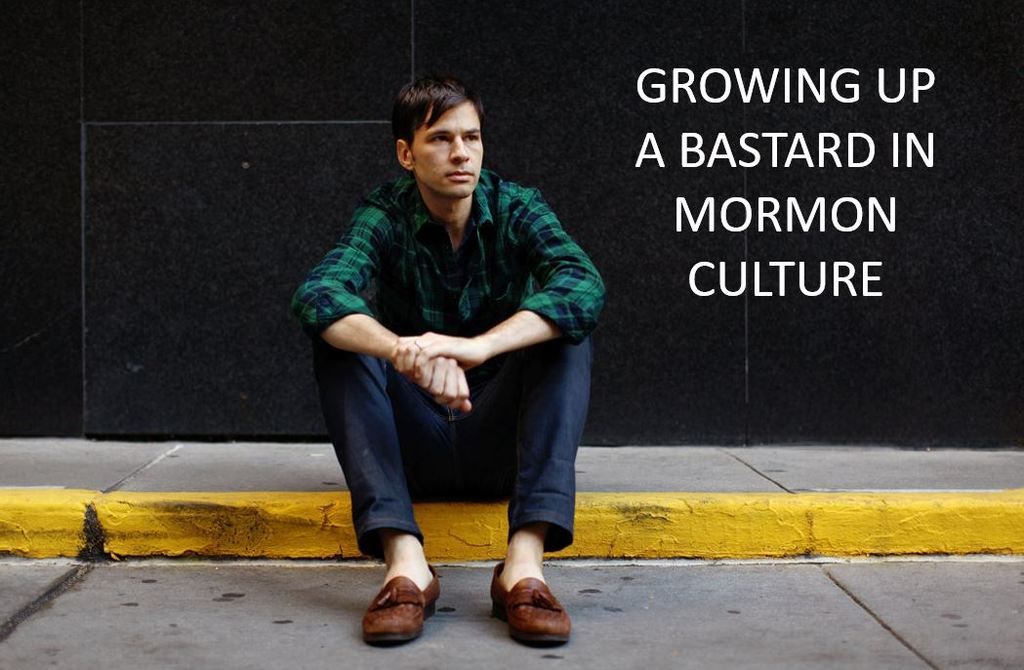by JAR
Caution: Gratuitous Use of the Word “Bastard”
It used to grind on my nerves.
Like, BAD.
No other word would incite fury in me like “bastard.” I hated it. And when people would use it in regards to me personally, I would go fisticuffs with a quickness. The repercussions for calling me a bastard were often times bloody noses or black eyes--sometimes other kids’, sometimes my own.
It took me quite a while to drill down to the underlying emotion surrounding the word “bastard.” I thought it pissed me off because it was just a mean word. But beneath everything else, being a bastard was downright embarrassing.
That was it: I was embarrassed to be a bastard.
I was embarrassed that other little kids had a dad at school functions. I was embarrassed at the looks that we would get in church. I was embarrassed that I couldn’t answer questions about my father--I still can’t, having never even met him (and only recently finding out his real name).
Embarrassment is a strong emotion. You can tell when your kids start to feel embarrassment, and it completely changes their behavior. It completely changed mine. But there’s something important that I realized as I grew older: I was not the only person embarrassed about me being a bastard.
And I was probably not the person most embarrassed about it.
First and foremost was my mother. She didn’t really discuss the embarrassment with me until adulthood, but looking back it all makes sense. A 17-year-old Mormon girl gets pregnant with some married guy’s child? Embarrassing. I was the bastard, but she was the one who caused my bastardom. And for that, she had to contend with an immediate label of “black sheep.” Some of the most judgemental people I know are members of the LDS church; their lightly-veiled well-meaning “charity” is not hidden very well behind audacious glances and up-turned noses. I’m not saying that everyone is like that, but try to walk into sacrament smelling like alcohol or cigarettes and I guarantee you get more than one sideways glance. It’s much worse if you’re the mother of a bastard.
Then there were my grandparents. Momma was living with them (as teenagers tend to do), and they had to contend with the same judgment with which my mother had to contend. From all accounts, Grandma and Grandpa were well-respected members of the ward; years later, my grandfather’s old home teaching companion would extol to me his virtues as a wonderful home teacher shortly after learning of Grandpa’s passing. But this was a stain on their reputations with which they most assuredly had to contend until they finally left the ward permanently.
Basically, I was not alone in my embarrassment; but that didn’t negate any of the emotions surrounding my embarrassment.
So how does one deal with embarrassment without getting angry about it? I don’t know if I can tell you how. As I grew older, I stopped caring what other people said or thought. So what if I am a bastard? There’s nothing I can do about it.
That’s important: IT IS NOT YOUR FAULT.
The circumstances surrounding your entry into this life are not your fault. If you are born into severe poverty, it is not because of anything YOU have done. If you are born without an arm, it is not because YOU have committed some heinous act. And if you are born a bastard, it is not because YOU were promiscuous.
Let the people who could have controlled the circumstances of your birth be embarrassed that they did not do a better job of doing so. That’s for them; not for you. And trust me: they are dealing with all sorts of emotional pain as well--so cut them some slack!
Just being a bastard gives you enough to overcome without handicapping yourself with negative emotions like anger or embarrassment. Don’t beat yourself up over stuff you couldn’t control!
And stop calling yourself a bastard. You’ve heard it enough; it’s time to move on.


